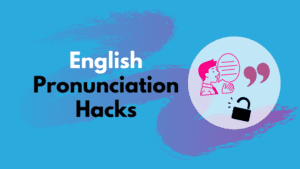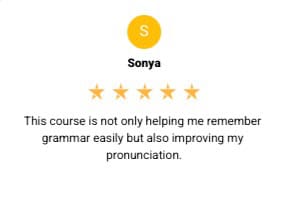8 Advanced Phrasal Verbs to Help you Ace IELTS
👇 Take this lesson with you! 👇
Table of Contents
Are you an adult student preparing for the IELTS Speaking test? Enhancing your vocabulary with advanced phrasal verbs can significantly boost your performance.
In this lesson, we’ll explore 8 advanced phrasal verbs that are not only fun to use but also add a natural flair to your spoken English, making you sound more like a native speaker.
To wear out
To wear someone out = To make someone very tired.
Running in the park can wear you out.
Preparing for IELTS can wear you out.
My boss wears me out when he talks for hours on end!
To wind up
To wind someone up = To irritate or annoy someone, often by playing tricks or teasing.
Stop winding up your sister, you know it makes her angry. I failed my test! No, it’s not true, I am just winding you up.
To do away with
To do away with = To abolish, get rid of, or eliminate something.
At last, the local government has done away with that tax on imported food.

To put up
To put someone up = To accommodate someone temporarily.
My brother is moving house at the moment, so I am going to put him up for a few nights.
I coming to visit London for two days, if you could put me up for a night, that’d be great. Otherwise, I can look for a hotel, no problem.
To fall for
To fall for someone = To develop romantic feelings for someone or to be tricked or deceived.
She fell for him the moment they met, and then they got married 3 months later.
Don’t fall for those scams on the Internet that sell you an IELTS certificate!
To fall out
To fall out = To have a disagreement and stop talking, which may end a relationship.
Tom and Zoe were married, but they fell out over disagreements about money, and eventually got divorced.
To make up
To make up = To become friends again after a disagreement or to invent a story or a lie.
If I ever fall out with a friend, I try to make up as soon as possible.
I know that’s not true, don’t make things up, tell me what really happened.

To be up for
To be up for something = To be willing or keen to do something.
I am not really up for doing this test, I don’t think I am ready yet. Maybe I will do it next year.
Hey, are you up for a drink? Let’s go down to the pub together!
Real-life aplication
To give you a better understanding, here’s how I personally relate to these phrasal verbs:
- What wears me out? Listening to boring people at parties.
- What winds me up? When people talk over me and just don’t listen.
- What would I like to do away with? My neighbour who plays loud music in the evenings.
- Could I put someone up this weekend? Sure, so long as they are not that friend who stays forever!
- Have I ever fallen for someone? Yes, for my wife and before that, a girl at university.
- Have I fallen out with a friend? Surprisingly, no. But I have fallen out with my wife a several times.
- Do I ever make things up? Generally, no, but sometimes a white lie helps smooth things over.
- Am I up for a drink tonight? Absolutely, if it’s your treat!
Practice makes perfect
Now that you’re familiar with these phrasal verbs, it’s time to practice them in context. Remember, learning them one by one and using them in real-life situations will help you master their usage and enhance your fluency in English.
Good luck with your IELTS preparation, and remember, practice is key to acing the test!
Improve your Speaking Skills with this Free Course
Crack IELTS Speaking Part 1
Learn to Speak with Confidence in Part 1 of Your IELTS Test!
⭐️⭐️⭐️⭐️⭐️
‘It’s such a great course. I’ve learned so many usages for speaking part 1.’
Zu Htet





